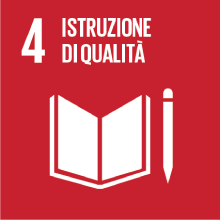MATHEMATICS - 2
- Anno accademico
- 2020/2021 Programmi anni precedenti
- Titolo corso in inglese
- MATHEMATICS - 2
- Codice insegnamento
- ET2018 (AF:331387 AR:178280)
- Modalità
- In presenza
- Crediti formativi universitari
- 6 su 12 di MATHEMATICS
- Livello laurea
- Laurea
- Settore scientifico disciplinare
- SECS-S/06
- Periodo
- 2° Periodo
- Anno corso
- 1
- Sede
- VENEZIA
- Spazio Moodle
- Link allo spazio del corso
Inquadramento dell'insegnamento nel percorso del corso di studio
A particular attention is paid to problems of maximization and minimization of functions of several variables and to simple but relevant application in Economics.
Risultati di apprendimento attesi
a) Knowledge and understanding
a.1) Knowledge of basic definitions in calculus in multiple variables and linear algebra;
a.2) Interpretation of the above definitions in terms of geometric properties, supported by a span of crucial examples.
b) Ability to apply knowledge and understanding
b.1) Ability to compute/plot, for functions of multiple variables: domains, level curves, partial derivatives, stationary points, limits (along restrictions), linear approximations, tangent planes;
b.2) Ability to maximize/minimize a two variable function, by means of: concavity/convexity properties; restriction on a compact subdomain (Weierstrass Theorem); Lagrange’s method;
b.3) Ability to apply the above tools to examples of economic/managerial vocation.
c) (Lifelong) learning skills
c.1) Improved ability to handle a formal language, to make logic deductions; enhance rigorous rational thinking;
c.2) Improved ability to translate a problem into formal terms, solve it and interpret the solution in terms of the original problem.
Prerequisiti
Contenuti
a.1) Subsets of R^n: interior/boundary points, open/closed sets, bounded sets, compact sets.
a.2) Natural domains and their representation in the plane. Graphs.
a.3) Level curves and their representation in the plane.
b) Partial derivatives
b.1) First order partial derivatives
b.2) Second order partial derivatives, Hessian matrix.
b.3) Linear approximation; tangent plane.
c) Continuity and Differentiability in R^n
c.1) Definition of a continuous function.
c.2) Continuity vs differentiability. Functions of class C^1. Examples and counterexamples.
c.3) Stationary points.
d) Unconstrained optimization in R^2
d.1) Definition of maxima/minima, local and global, in R^2.
d.2) First order conditions of optimality.
d.3) Concave/convex functions; second order conditions of optimality.
d.4) Inflection points.
e) Implicit functions
e.1) The chain rule
e.2) The implicit function theorem and applications
f) Constrained optimization in R^2
f.1) Weierstrass theorem. Application to examples.
f.2) Lagrange multipliers method for a function of 2 variables, subject to 1 equality constraint.
f.3) Economic applications: maximization of production with budget constraints; minimization of expenditure with production constraints.
g) Linear Algebra
g.1) Vectors and linear independence.
g.2) Matrices and operations on matrices.
g.3) Determinants. Expansion by cofactors.
g.4) Invertible matrices. Inverse of a matrix.
h) Linear Systems
h.1) Gaussian elimination. Rank of a matrix.
h.2) Rouché-Capelli Theorem.
h.3) Solution of a linear system by Gaussian elimination.
h.4) Application to economic/managerial problems.
Testi di riferimento
In addition, lecture slides, homework and solved exams are made available on the webpage of the course, the university e-learning platform moodle.unive.it, at the page
https://moodle.unive.it/course/view.php?id=4882
Modalità di verifica dell'apprendimento
The exam consists of 6 problems, 3 of which on the topics Mathematics I, and 3 on those of Mathematics II, to be solved in 2h30’ overall. Abilities acquired by students are verified by requiring them to solve the problems. Their acquired knowledge is verified by asking them to justify in detail their answers, on the basis of the theoretical results (definitions and theorems) presented and practised in class during the course.
The exam is closed-notes and closed-book, but students are allowed to use a pocket calculator (scientific calculators computing derivatives and integrals, or plotting graphs, are not allowed).
Students scoring 18/30 or above may register the grade or ask for the optional oral exam. With the oral exam the grade may be raised or diminished. Students scoring between 16/30 and 18/30 also may ask for the optional oral exam, and register grades reaching a minimum of 18/30 (after the orals).
Two partial exams are issued during the course time span, one covering the topics of Mathematics I and one covering those of Mathematics II. A score in each of the partial equal or above 8/30 is considered equivalent to the final written exam, with overall grade equal to the sum of the grades of the partials. (The rules for orals apply similarly).
Samples of Exams with complete solutions are found in
https://moodle.unive.it/course/view.php?id=4882
Modalità di esame
Metodi didattici
In particular, during the course time, office hours are held in public. Students may come and ask questions or simply sit and listen to other students’ questions and to the instructor’s answers. A further discussion is also possible on appointment.
The topics discussed in class are supported by materials made available for download on the webpage of the course https://moodle.unive.it/course/view.php?id=4882 , including:
a) the complete set of slides/lecture notes;
b) weekly sets of homework exercises;
c) a list of previous exams, all completely solved
d) all relevant information about the course, and real time updates.
Lingua di insegnamento
Altre informazioni
Accessibility, Disability and Inclusion
Accommodation and support services for students with disabilities and students with specific learning impairments
Ca' Foscari abides by Italian Law (Law 17/1999; Law 170/2010) regarding support services and accommodation available to students with disabilities. This includes students with mobility, visual, hearing and other disabilities (Law 17/1999), and specific learning impairments (Law 170/2010). If you have a disability or impairment that requires accommodations (i.e., alternate testing, readers, note takers or interpreters) please contact the Disability and Accessibility Offices in Student Services: disabilita@unive.it.
Obiettivi Agenda 2030 per lo sviluppo sostenibile
Questo insegnamento tratta argomenti connessi alla macroarea "Capitale umano, salute, educazione" e concorre alla realizzazione dei relativi obiettivi ONU dell'Agenda 2030 per lo Sviluppo Sostenibile


